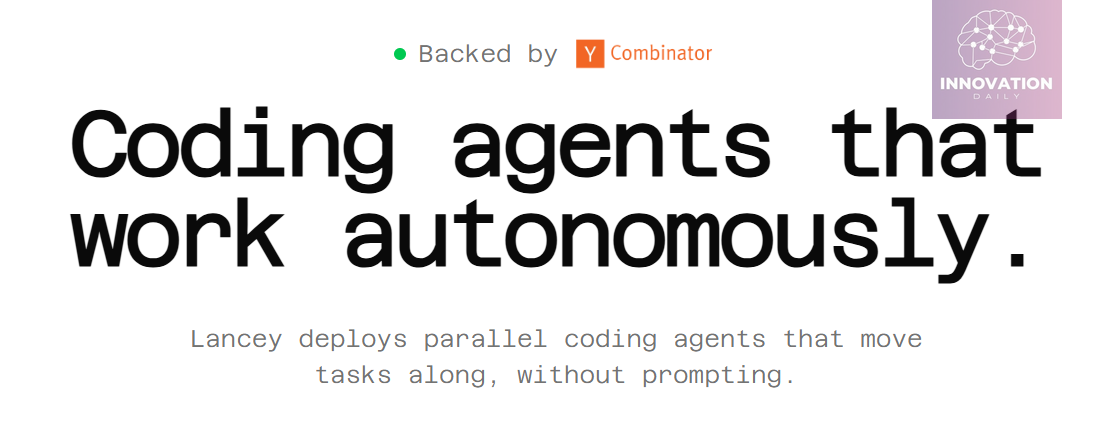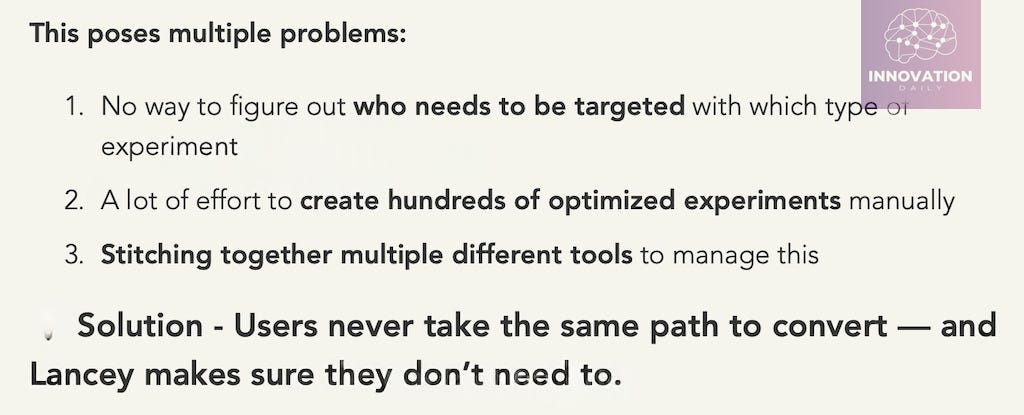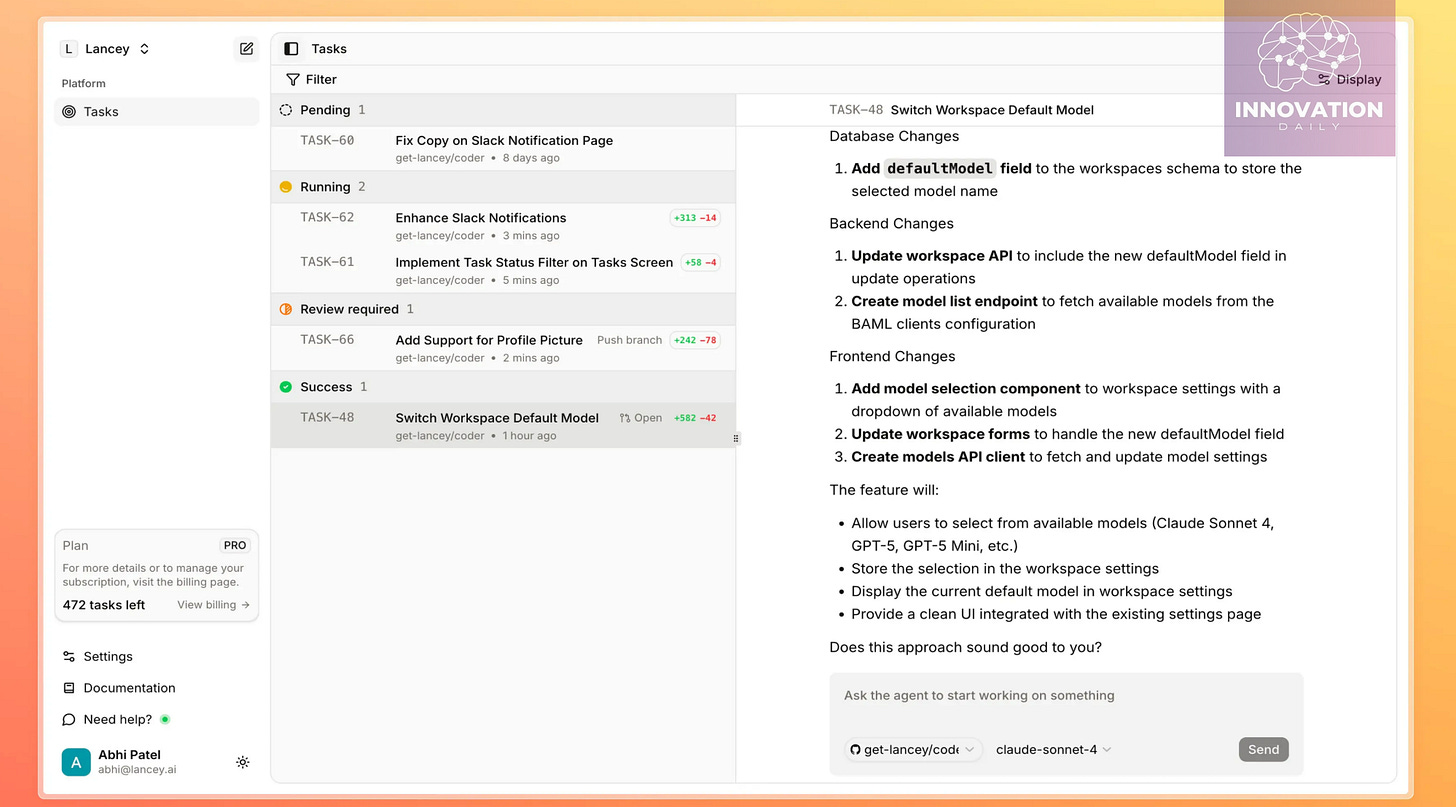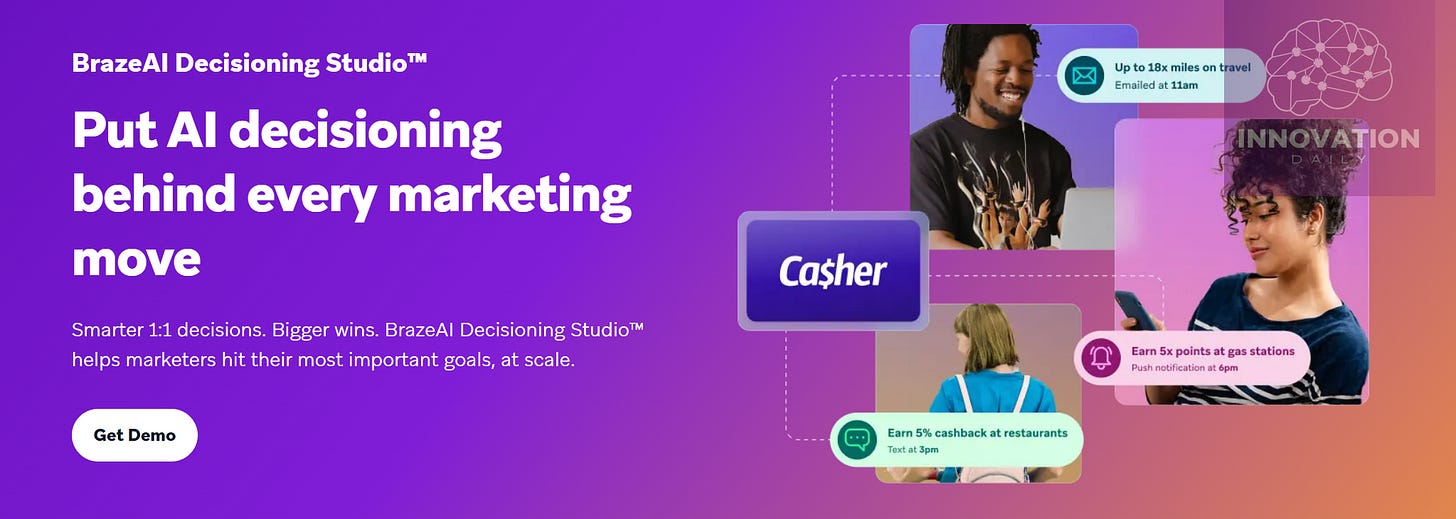From Micro-Experiments to Product Intelligence
Today’s featured startup once aimed to automate behavioral experiments. Now it helps teams make smarter product decisions through customer feedback
Project Overview
Lancey started as an AI-driven platform designed to automate product micro-experiments — small, targeted tests run on specific groups of users, selected not only by demographics but also by behavioral patterns.
The original idea behind Lancey was “scalable personalization” — adapting a product to different types of users without manually analyzing endless data. The system could connect to sources like Segment, Snowflake, MailChimp, and payment systems, then use AI to identify behavioral patterns and suggest actions to boost engagement, retention, or activation.
In its early version, Lancey aimed to automate the entire experimentation cycle:
AI would analyze data → cluster users → suggest hypotheses → test them → measure results → and scale successful experiments.
Lancey went through Y Combinator in the summer of 2022, securing $500,000 in funding. Later, the team shifted from micro-experiments to a broader goal — helping product teams make data-driven decisions by analyzing customer feedback from multiple sources.
While the product evolved, Lancey’s core mission remained the same: to use AI to help teams understand their users and make smarter product choices.
What’s the Gist?
Although today Lancey focuses on turning customer feedback into actionable insights, its original concept — automating behavioral micro-experiments — captures one of the biggest trends in modern product management: scalable personalization.
Most businesses still operate on a “one size fits all” principle, often not because they want to, but because diving into individual user behavior takes too much time, effort, and money. That’s why many teams rely on averages and general assumptions, missing opportunities hidden in the “long tail” of user diversity.
Lancey’s early vision offered a smarter approach: instead of treating users as one large group, AI could identify subtle behavioral patterns and automatically test hypotheses for each segment. This idea connects Lancey to other startups exploring scalable personalization — such as Subsets, which helps digital publishers reduce churn by identifying distinct reader behavior patterns, or OfferFit, which uses AI to send personalized offers to shoppers based on their habits and timing preferences.
Even outside traditional apps or e-commerce, the concept works. Take Studio, an edtech startup that raised over $60M to launch an AI-powered “music school of the future.” Its system personalizes lessons for each student and even groups learners by level and goals — a great example of scalable personalization in education.
Key Takeaways
The direction is clear — the future belongs to scalable personalization powered by AI.
For product creators, that means two main opportunities:
Use AI to analyze and adapt your own product to different types of users, improving activation, engagement, and retention.
Or build platforms that help other teams do the same.
Startups like Lancey, Subsets, OfferFit, and Studio show that the potential of AI-driven personalization goes far beyond marketing — it can reshape how we design, test, and evolve products themselves.
Company Info
Website: lancey.ai
Latest Round: $500K 01.08.2022
Total Funding: $500K across 1 round










